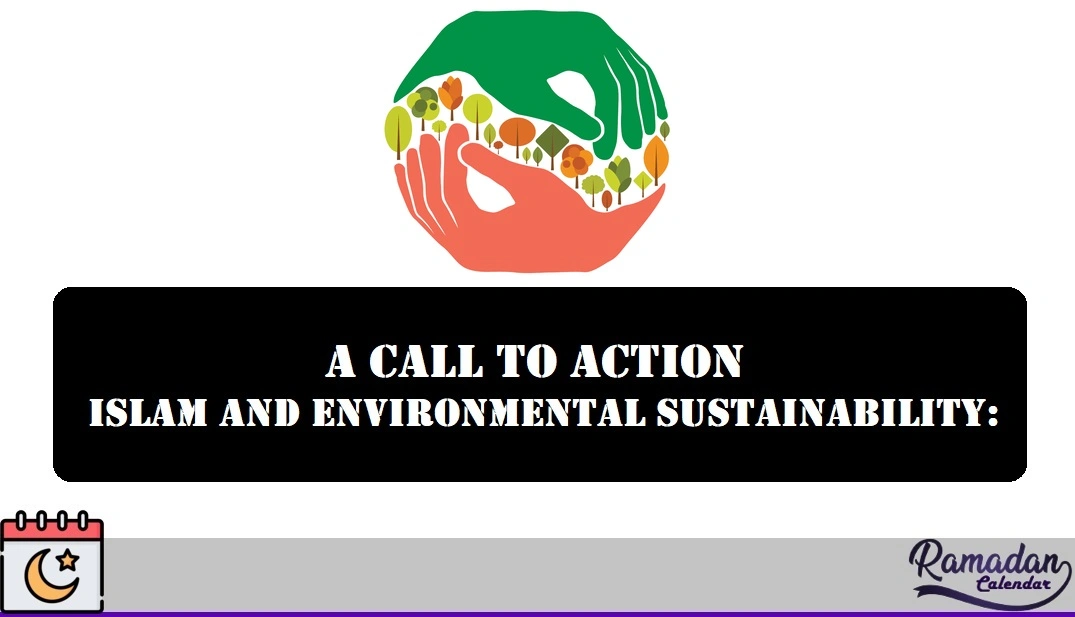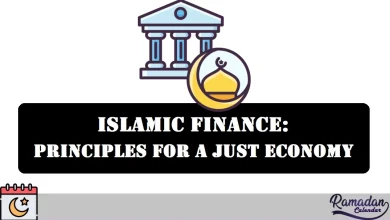Islam and Environmental Sustainability: A Call to Action
Islam's Perspective on Environmental Sustainability

Islam and Environmental Sustainability: A Call to Action___In a world grappling with the dire consequences of environmental degradation, the teachings of Islam stand as a beacon of guidance, urging humanity to harmonize with nature and uphold the sanctity of the Earth. The Islamic perspective on environmental sustainability is both profound and practical, deeply rooted in the Qur’an and the traditions of Prophet Muhammad (peace be upon him). This divine guidance, coupled with an ethical framework, places an undeniable responsibility on Muslims to act as stewards of the Earth.
The Islamic Ethos of Stewardship
The Qur’an explicitly reminds humanity of its entrusted role as stewards (khalifah) of the Earth. In Surah Al-Baqarah (2:30), Allah states, “Indeed, I will make upon the earth a successive authority.” This verse underscores the sacred responsibility bestowed upon humans to care for and protect the environment. The concept of stewardship is not a passive one; it demands active engagement in maintaining ecological balance, preserving natural resources, and ensuring sustainability for future generations.
The Prophet Muhammad (peace be upon him) further emphasized this responsibility through his actions and sayings. He often highlighted the importance of conserving resources, planting trees, and showing mercy to all creatures. For instance, he said, “If a Muslim plants a tree or sows seeds, and then a bird, or a person, or an animal eats from it, it is regarded as a charitable gift” (Sahih al-Bukhari). This hadith reflects an intrinsic link between acts of worship and acts of environmental care, illustrating how the two are inseparable in Islamic thought.
Environmental Ethics in the Qur’an and Sunnah
Islamic teachings advocate for balance and moderation, which are central to achieving environmental sustainability. The Qur’an warns against wastefulness, stating in Surah Al-Isra (17:27), “Indeed, the wasteful are brothers of the devils, and ever has Satan been to his Lord ungrateful.” This verse is a stark reminder of the spiritual and environmental consequences of extravagance. By reducing consumption and avoiding waste, Muslims can align their lifestyles with the principles of sustainability.
The Sunnah provides numerous examples of the Prophet Muhammad’s (peace be upon him) commitment to environmental care. He instructed his companions to avoid excessive use of water, even during ablution, a ritual act of purification, emphasizing conservation even in acts of worship. This principle, when applied broadly, encourages mindful use of resources in daily life.
The Modern Environmental Crisis: An Islamic Response
Today, the planet faces unprecedented environmental challenges: climate change, deforestation, pollution, and the loss of biodiversity. These crises are not merely ecological but deeply moral issues. From an Islamic perspective, environmental degradation reflects a breach of the trust (amana) placed upon humanity by Allah. Addressing these issues requires a return to the ethical framework laid out in Islamic teachings.
One of the pressing issues is climate change, driven by the overconsumption of fossil fuels and unsustainable practices. Muslims are called to reduce their carbon footprint by adopting renewable energy, supporting sustainable farming, and advocating for environmental justice. The principles of justice (adl) and mercy (rahma) demand that we address the disproportionate impact of environmental degradation on vulnerable populations.
Lessons from Surah Al-Kahf: Stories of Guidance and Patience
Practical Steps for Muslims
The call to environmental action is not an abstract ideal but a practical imperative. Here are some actionable steps for individuals and communities inspired by Islamic teachings:
- Adopt Sustainable Practices: Reduce waste, conserve water, and minimize energy consumption. Small actions, such as using reusable bags, avoiding single-use plastics, and opting for public transportation, can collectively make a significant impact.
- Plant Trees and Protect Nature: Following the example of the Prophet (peace be upon him), engage in tree-planting initiatives and protect green spaces. Trees not only combat climate change but also serve as a source of shade, food, and habitat for countless creatures.
- Promote Environmental Education: Spread awareness within mosques, schools, and communities about the Islamic perspective on environmental care. Imams and community leaders can incorporate environmental themes into sermons and educational programs.
- Advocate for Policy Changes: Support policies that prioritize sustainability, such as renewable energy projects, conservation efforts, and pollution control measures. Use your voice to demand accountability from governments and corporations.
- Engage in Ethical Consumption: Choose products and services that align with the principles of sustainability and social responsibility. Supporting fair trade, organic farming, and local businesses can help build a more equitable and eco-friendly economy.
A Collective Responsibility
Islam teaches that humanity’s fate is intertwined with the well-being of the planet. The Qur’an states in Surah Ar-Rum (30:41), “Corruption has appeared throughout the land and sea by [reason of] what the hands of people have earned so He may let them taste part of [the consequence of] what they have done that perhaps they will return [to righteousness].” This verse serves as both a warning and a call to action, urging us to reflect on our actions and their impact on the environment.
The journey toward environmental sustainability requires collective effort. Muslim communities around the world must unite to adopt eco-conscious practices, advocate for sustainable policies, and inspire others through their actions. By integrating the principles of Islam into environmental initiatives, Muslims can lead the way in addressing the global ecological crisis.
Conclusion
Islam’s teachings on environmental stewardship offer a timeless and holistic framework for sustainability. As stewards of the Earth, Muslims are entrusted with the noble duty to protect and preserve the environment, ensuring its balance and beauty for generations to come. The environmental crisis we face today is not just a scientific challenge but a moral and spiritual one. By embracing the principles of moderation, conservation, and justice, Muslims can fulfill their divine mandate and contribute to a more sustainable and harmonious world.
The time to act is now. Let us rise to the challenge, guided by faith and fortified by the wisdom of Islamic teachings, to create a legacy of environmental stewardship that honors our Creator and safeguards the Earth for all of humanity.





